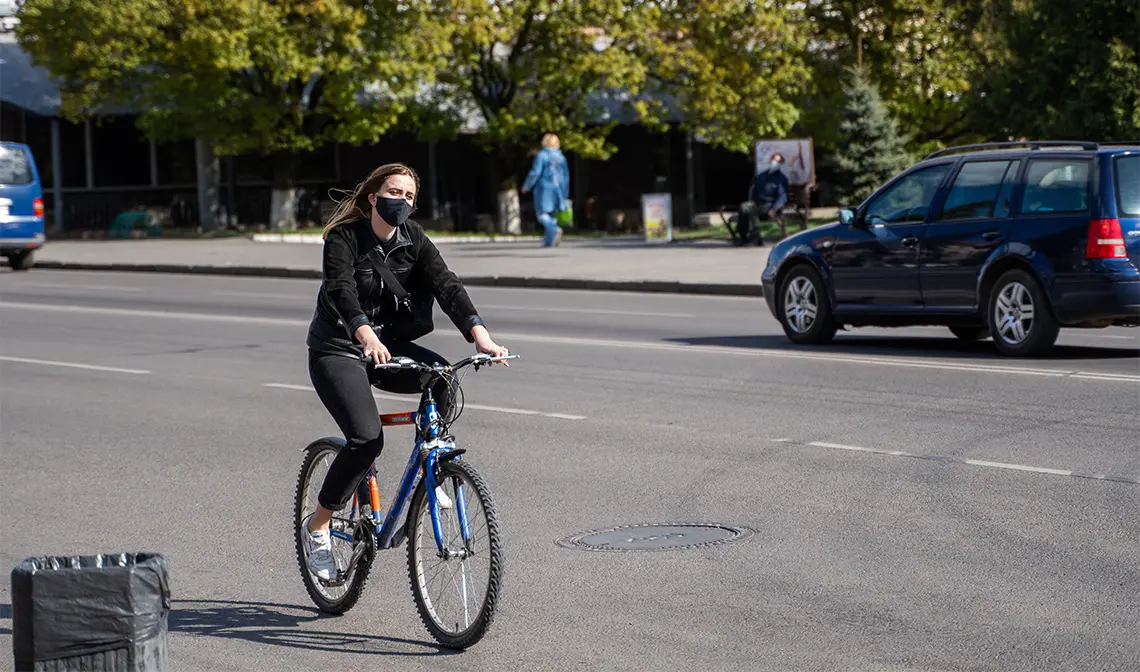Swiss Quality of Life Remains High
Nearly nine out of 10 people in Switzerland rate their quality of life as good, despite the current pandemic situation. At the same time, the population has become less diligent in adhering to preventive measures. These are the findings of the current COVID-19 Social Monitor issued by ZHAW in cooperation with the University of Zurich and the University of Bern.

Among the Swiss population, 87 percent rate their current quality of life as good or very good. The corresponding values have remained stable in the past few months. The proportion of individuals experiencing increased mental stress has even declined somewhat and is currently at 23 percent (February 2021: 28 percent). However, among young people between the ages of 18 and 29, it is still at 37 percent, which is considerably higher than for other age groups. This is shown by the latest “COVID-19 Social Monitor” survey conducted by the ZHAW School of Management and Law in collaboration with the University of Zurich and the University of Bern in the second half of October.
Negative impact varies
“Overall, negative impact on the quality of life among the general population has not been as strong as was feared in the beginning,” says study leader Marc Höglinger from the Winterthur Institute of Health Economics at ZHAW. While the shutdowns and the tightening of measures in the spring of 2020 and last fall and winter did have an impact on quality of life and mental well-being, this was, for the most part, not severe. At the same time, there are clear differences within the population: For example, young adults and low-income individuals have been affected more strongly by mental stress and feelings of loneliness. “Impairment over time has been similar for the different groups, but it has manifested itself at different levels. For people who are already less well off, further deterioration is more serious,” adds Höglinger.
Trust in authorities and media declining
Furthermore, with the rise of the vaccination rate, the Swiss population is increasingly less consistent in adhering to preventative measures for COVID-19: Whereas in February 2021, for example, 92 percent said they usually practiced social distancing, the figure is currently only 69 percent. Among 18–29-year-olds, the figure is less than half. Social activities and mobility, in general, have increased since spring: Only around one in five people still avoid private visits and stay at home (February 2021: around 70 percent each). “Throughout the pandemic, people have, for the most part, consistently adhered to the recommended or prescribed preventive measures and behavioral rules,” summarizes Sarah Heiniger, project team member and health care researcher at ZHAW.
Since the beginning of the pandemic, the public have lost some of their trust in the authorities and the media: While 82 percent said in April 2020 that they had a high level of faith in the authorities, this figure had fallen to 62 percent by February 2021 and currently stands at around two-thirds. Only 56 percent still have strong trust in the media (April 2020: 69 percent). Concerning science, the figures are relatively stable: 65 percent of the Swiss population say they have a high level of trust in science. Trust is generally lower among people with lower incomes or lower levels of education than among people with high incomes or high levels of education.
Regular surveys
The COVID-19 Social Monitor uses regular surveys to examine the impact of the Corona crisis on the Swiss population. Between 1,492 and 2,802 people from all parts of the country have taken part each time. This allows representative statements for Switzerland on the development of the recorded indicators over time. In particular, the survey shows changes in the well-being, health status, employment situation, and behavior of the Swiss population throughout the Corona crisis. The current, detailed results are published online a few days after each survey. The study is a joint project by the Winterthur Institute of Health Economics of ZHAW, the Institute of Epidemiology, Biostatistics and Prevention of the University of Zurich, and the Clinical Trial Unit of the University of Bern. To date, 19 surveys have been conducted between 30 March 2020 and 28 October 2021.
Contact
- Marc Höglinger, Winterthur Institute of Health Economics, ZHAW School of Management and Law, phone: +41 (0)58 934 49 80, email: marc.hoeglinger@zhaw.ch
- Sarah Heiniger, Winterthur Institute of Health Economics, ZHAW School of Management and Law, phone: +41 (0)58 934 46 67, email: sarah.heiniger@zhaw.ch
- Frederic Härvelid, Communications, ZHAW School of Management and Law, phone: +41 (0958 934 51 21, email: oscarfrederic.haervelid@zhaw.ch